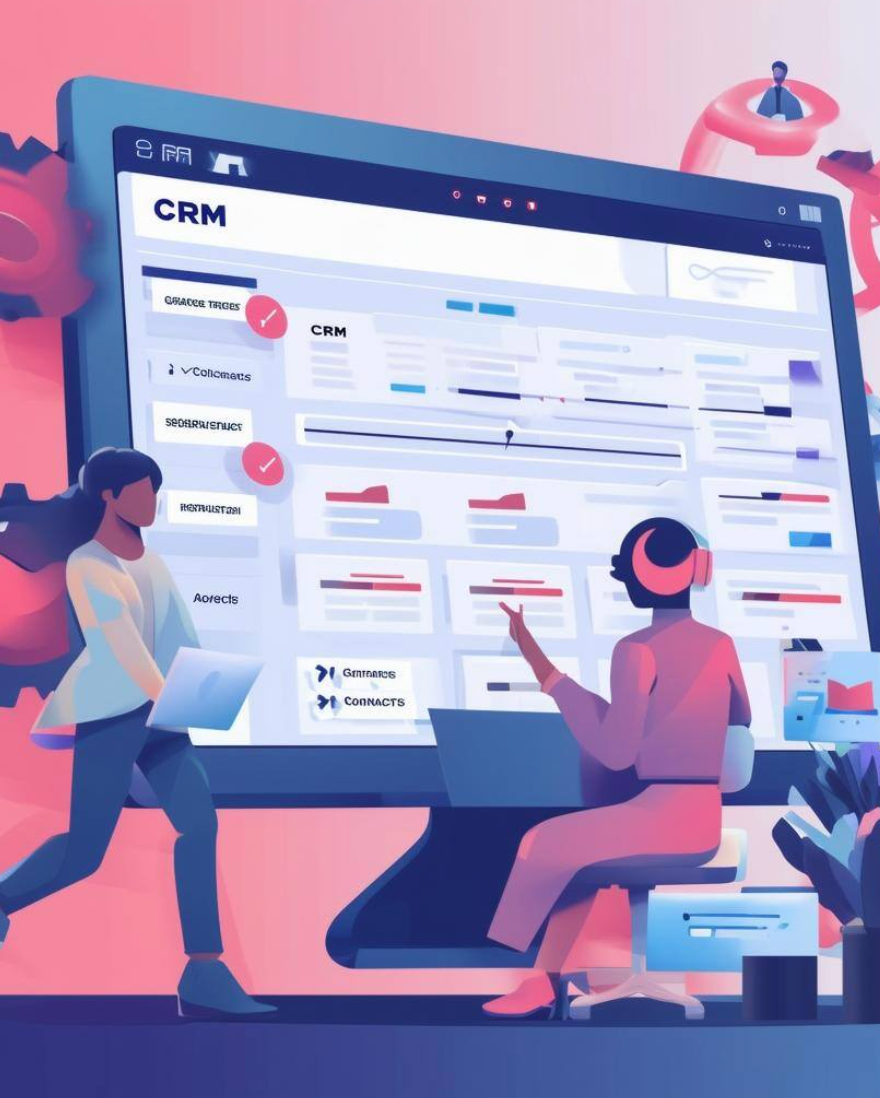Contents
- Limitations in integration with other tools
- Still too many manual tasks
- Inability to offer personalized customer experiences
- Your CRM system limits growth and scaling
- Limited in-depth analysis and reporting
- Low user adoption
Has your marketing team stopped delivering relevant leads? Are warm customer contacts falling through the cracks? The problem might not lie with your staff – but with your CRM system. Here are six clear signs that your current platform is no longer up to the job.
Your CRM is key to several critical success factors: from crafting tailored campaign offers and aligning marketing with sales, to building strong and lasting customer relationships. All of this is essential if you want to stay competitive. That is why you must pay attention to the subtle signs showing your system is falling behind. Here are six of them:
- Limitations in integration with other tools
Does your CRM have built-in features that allow seamless integration with other core systems – or are you still stuck copy-pasting? The ability to connect your CRM with the rest of your tech stack is vital for avoiding data silos and improving efficiency.
Imagine launching a new product but using separate tools for email, social media, and customer analytics. Keeping track of which customer interacted with which campaign becomes nearly impossible.
If your marketing team spends hours syncing customer data between your newsletter platform and CRM, you are wasting time and increasing the risk of errors. When data is not centralized, it is hard to get a full picture of the customer journey – which often leads to poor service and lost opportunities.
- Still too many manual tasks
Automation of repetitive tasks is essential for productivity. If your CRM still requires manual data handling, that is a red flag. Without automation, your team will have less time for strategic work and direct customer engagement – and may lose motivation.
When staff repeatedly handle the same tedious tasks, the value of their work becomes harder to see. This can lead to frustration, decreased productivity, and ultimately, higher employee turnover.
- Inability to offer personalized customer experiences
Can your CRM provide enough data to deliver personalized offers – or do all your efforts end up feeling generic? Personalization is key to creating engagement. Without it, your campaigns fall flat, and customers may go elsewhere for more relevant solutions.
A modern CRM should support segmentation, automation, customer history, and interaction tracking. Without these tools, it is difficult to tailor communication and offers. Your CRM should help you identify trends and preferences – if it cannot, a true personalized experience becomes impossible.
- Your CRM system limits growth and scaling
A core trait of any CRM should be its ability to grow with your business and adapt to changing needs. If your CRM starts struggling when you add new users or expand your customer database, it is time to take action.
Watch out for signs like:
- A limit on the number of user licenses included
- Long loading times and frequent crashes
- Lack of support for new sales models or marketing strategies
If your CRM cannot scale, it will hurt your customer experience and internal efficiency – and hold back your company’s growth instead of enabling it.
- Limited in-depth analysis and reporting
Advanced analytics and reporting are essential to understanding customer behavior and optimizing strategy. If your CRM lacks these features, you will miss valuable insights.
Time to upgrade if your system lacks:
- Tools for custom dashboards and reports
- Data analysis features for spotting trends and patterns
- Integration with tools like Google Analytics or Power BI
- Predictive analytics to forecast trends based on historical data
- Real-time data for fast and informed decisions
- Visualization tools like graphs and charts for clearer insights
Without these capabilities, your business decisions could be based on incomplete or incorrect data.
- Low user adoption
If your team complains the CRM is hard to use – take it seriously. Ease of use is one of the most important factors for adoption. If the system is too complex, people will avoid using it altogether.
A poor CRM often has a confusing interface, lacks intuitive design, and offers limited customization. This leads to inefficient workflows, reduced productivity, and poor data quality. If your team avoids the tool, the system is doing more harm than good.
Conclusion
Upgrading to a modern CRM is essential for maintaining efficiency and seizing business opportunities.
Need help navigating the CRM landscape and finding the right solution?

